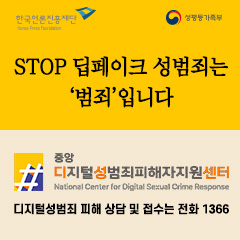
The government announced that, starting from February, it will expand the health insurance premium deduction amount imposed on vehicles and property for locally registered residents from the current KRW 50 million to KRW 100 million.
According to the National Health Insurance Service, health insurance premiums are part of a social security system designed to prevent households from facing excessive burdens due to high medical expenses resulting from diseases or injuries. Citizens pay insurance premiums regularly, and the National Health Insurance Service, as the insurer, manages and operates the system. When necessary, it provides insurance benefits, sharing risks among citizens and ensuring access to necessary medical services.
Therefore, citizens are obligated to join the National Health Insurance, pay insurance premiums based on their financial capacity, and receive equal protection. All citizens who reside in Korea, excluding Medical Aid Beneficiaries, and Health Care Beneficiaries for veterans, become subscribers or dependents (individuals receiving support from others) of health insurance.
National Health Insurance covers all employees and employers in every workplace, as well as public officials and educators, who are classified as the employee insured. However, certain individuals, such as day laborers with employment periods of less than one month, and active-duty soldiers, cannot be categorized as the employee insured. Individuals other than the employee insured and their dependents, are referred to as the self-employed insured.
The employee insured are subject to health insurance premiums based on their income, including income outside their monthly salary. The self-employed insured are charged insurance premiums based on a scoring system that assesses income and property including rent. In the case of the self-employed insured, the premiums are applied to both property and automobiles, leading to criticism that it is unfair when compared to the free ride enjoyed by dependents. The term 'free ride for dependents' refers to the situation where high-income individuals or those with significant assets register as dependents, avoiding insurance premiums and receiving benefits.
Korea is the only country that imposes health insurance premiums on automobiles, and there are criticisms that it is inappropriate to charge insurance premiums for vehicles that have become essential for daily life. Introduced in 1982 due to difficulties in assessing income, the property insurance premium has also been criticized for causing a significant burden on individuals whose income decreases after retirement, but who own properties such as houses.
With the change in the insurance premium imposition system, approximately 94.3% (or 3.33 million households) of the 3.53 million households bearing automobile and property insurance premiums among the health insurance premiums are expected to benefit. The monthly health insurance premiums are estimated to decrease by around KRW 25,000, resulting in an average annual reduction of about KRW 300,000. The Ministry of Health and Welfare mentioned that for some households, insurance premiums could be reduced by up to KRW 100,000 per month.
Meanwhile, the overall revenue from health insurance premiums is expected to decrease by approximately KRW 983.1 billion annually. Concerns about fiscal deficits have been raised, as this reduction represents 1.07% of the total health insurance premium revenue of KRW 91.6 trillion. Some experts express concerns that the annual deficit could increase significantly due to low birth rates and aging populations, leading to rapid expenditure growth. In response to concerns about a decrease in insurance premium revenue, Minister of Health and Welfare Gyu-hong Jo stated, "There won't be a leakage, and sufficient funds can be secured through the efficiency of health insurance expenditures. We have established a plan that enhances fairness and sustainability."
(한국어 번역)
한국다문화뉴스 = 심민정 기자ㅣ당정은 2월부터 차량가액이 4000만 원 이상인 경우 부과하는 자동차 건강보험료 및 지역가입자 재산에 대한 보험료 공제액을 현행 5000만 원에서 1억 원으로 확대한다고 전했다.
건강보험료란 국민건강보험공단에 따르면, 질병이나 부상으로 인해 발생한 고액의 진료비로 가계에 과도한 부담이 되는 것을 방지하기 위하여, 국민들이 평소에 보험료를 내고 보험자인 국민건강보험공단이 이를 관리, 운영하다가 필요시 보험급여를 제공함으로써 국민 상호간 위험을 분담하고 필요한 의료서비스를 받을 수 있도록 하는 사회보장제도를 말한다.
따라서 국민건강보험은 의무적으로 가입하고 보험료를 납부해야 하며, 부담 능력에 따른 보험료가 부과되고 균등한 보장을 받는다. 의료급여를 받는 사람이나 유공자 등 의료보호대상자 등을 제외하고 국내 거주하는 국민은 건강보험의 가입자 또는 피부양자(다른 사람에게서 부양(扶養, support) 받는 사람)가 된다.
국민건강보험은 모든 사업장의 근로자 및 사용자와 공무원 및 교직원은 직장가입자로 가입하게 된다. 단, 고용 기간이 1개월 미만인 일용근로자나 헌역병 등 일부는 직장가입자가 될 수 없다. 직장가입자와 그 피부양자를 제외한 가입자를 지역가입자라고 한다.
직장가입자는 월급 외 소득을 포함한 소득에 대해 건보료를 부과하고 지역가입자는 소득과 전월세를 포함한 재산에 대해 점수를 매겨 건보료를 부과한다. 이때 지역가입자는 재산과 자동차에 보험료를 물리는데, 피부양자의 무임승차와 비교하며 공평하지 않다는 지적이다. 피부양자의 무임승차란 고소득ㆍ고액 자산가가 피부양자로 등록해 건보료를 내지 않고 혜택을 받는 것을 말한다.
자동차에 건강보험료를 부과하는 국가는 대한민국만 있으며, 생활필수품이 된 자동차에 건보료를 낸다는 것은 적절하지 않다는 비판이다. 소득 파악의 어려움으로 1982년 도입된 재산보험료 역시 직장 은퇴 후 소득이 줄어든 자의 경우 보유한 주택 등의 재산으로 인해 보험료 부담이 큰 경우가 있다는 지적이다.
보험료 부과제도가 변경되면, 건강보험료 가운데 자동차ㆍ재산보험료를 부담하는 353만 가구 중 94.3%인 333만 가구가 혜택을 본다. 월 건보료가 2만5000원, 연간 30만 원 가량 평균적으로 낮아질 것으로 예상된다. 복지부는 일부 세대는 최대 월 10만 원 수준까지 보험료가 인하되는 경우도 있을 것이라고 전했다.
한편, 건보료 전체 수입은 연간 9831억 원가량 축소된다. 이에 전체 건강보험료 수입인 91조 6000억 원의 1.07%의 규모가 줄어들어 재정 고갈의 우려도 나오고 있다. 저출산 및 고령화로 지출이 급격히 늘 전망으로 적자 폭이 매년 커질 수 있다는 의견이다. 보험료 수입 감소 우려에 대해 조규홍 보건복지부 장관은 “누수가 생기는 것은 아니고, 건강보험 지출 효율화를 통해 충분히 조달이 가능하다”며 “부과 형평성과 공정성은 높이되 지속가능성도 함께 확보해나가는 방안을 마련한 것”이라고 말했다.





















